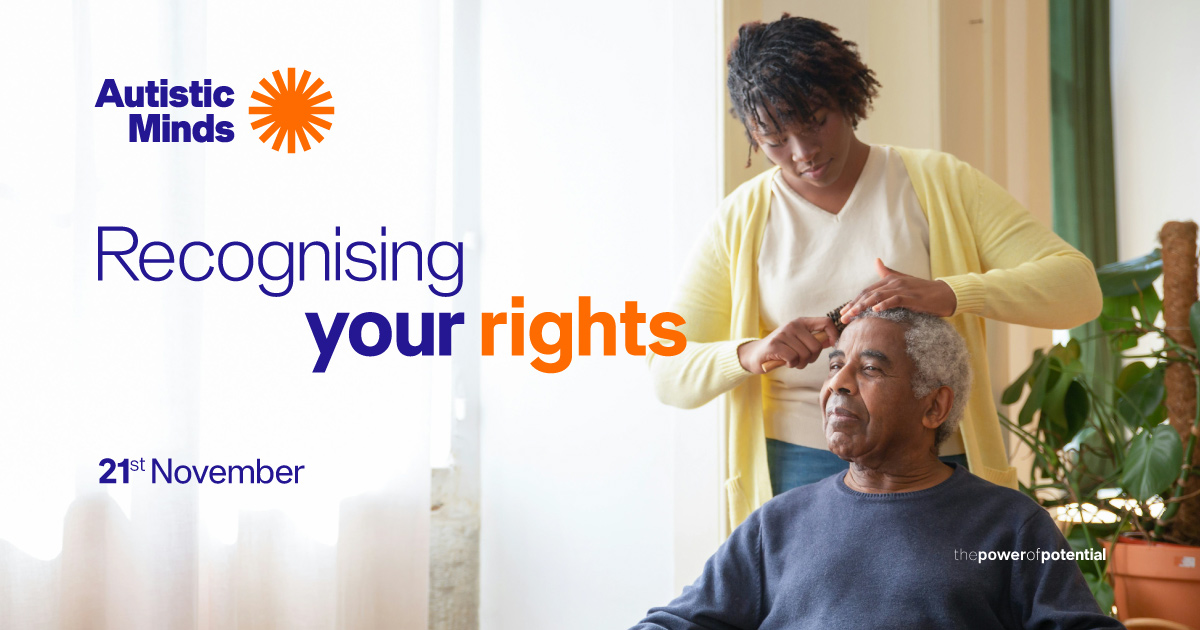Carers Rights Day: Supporting autistic carers and advocating for their rights

Each year, Carers Rights Day brings much-needed awareness to the essential role of carers, providing a space to discuss the challenges they face and the rights and resources they need. It’s an important opportunity to acknowledge the contributions of carers, raise awareness about their needs, and advocate for increased support.
While society often recognizes carers as people who support loved ones with disabilities or chronic health conditions, it’s also important to remember that many carers are autistic themselves. autistic carers—whether they are supporting children, partners, elderly relatives, or friends—bring unique strengths to their roles, but they also face specific challenges. Carers Rights Day offers a platform to highlight their needs, amplify their voices, and promote understanding of their experiences. In this post, we’ll discuss what it’s like to be an autistic carer, the hurdles that autistic carers may encounter, and why supporting their rights is essential.
The Experience of an autistic carer
Autistic carers often bring qualities like empathy, dedication, and attention to detail to their caregiving role. They may find that their own experiences with autism allow them to relate closely to their loved ones’ needs and challenges, especially if they are also caring for an autistic family member. This unique perspective can enable them to provide insightful and sensitive support that truly respects the individual needs of the person they’re caring for.
However, autistic carers face challenges that can make their role especially demanding. Many struggle with the physical and emotional toll of caregiving, particularly when this involves managing their own sensory needs, emotional regulation, or daily routines. Sensory sensitivities, for instance, might make busy hospitals or social service environments challenging. Social demands or communicating with healthcare providers can be stressful, especially when information is complex or delivered without clarity.
Furthermore, autistic carers often experience a heightened need for structure and predictability. This can clash with the unpredictable nature of caregiving, such as when emergency situations arise, or routines need to be suddenly adjusted. For many autistic carers, even finding a balance between their own self-care and caregiving can be a challenge due to the high mental and physical energy involved.
Challenges Faced by autistic carers
Autistic carers encounter unique challenges that can intensify their caregiving experience. These challenges often include:
- Sensory Overload and Burnout: Caregiving environments can be loud, unpredictable, and full of sensory triggers. Hospitals, support offices, and crowded settings may lead to sensory overload. Additionally, many autistic carers already experience higher levels of sensory input sensitivity, so ongoing caregiving without respite can lead to burnout.
- Social and Communication Barriers: Many autistic people find traditional communication methods difficult, especially in medical or social services settings where jargon and rushed conversations are common. Explaining needs, advocating for support, and communicating with other professionals can require immense energy and preparation.
- Mental Health Challenges: Many autistic carers are at an increased risk for mental health struggles, including anxiety and depression, especially when balancing self-care with the demands of caregiving. Long-term caregiving can exacerbate these conditions, particularly if there’s little time for breaks or if resources are limited.
- Isolation: Because of the challenges of juggling caregiving with social interaction, many autistic carers feel isolated. Friends and family may not fully understand the unique difficulties they face, and finding a support network that accommodates both their autism and their caregiving role can be difficult.
- Financial Strain and Employment Issues: Many autistic carers struggle with employment due to the demands of caregiving or because of workplace environments that may not be autism friendly. autistic carers often need flexible hours, sensory accommodations, and predictable tasks, but few employers provide this support.
Rights and Support for autistic carers
Carers Rights Day serves as a vital reminder of the rights and resources that can help autistic carers feel more supported. Awareness of these rights can empower autistic carers to seek the support they need to continue caring effectively while also maintaining their own well-being.
- Carer’s Allowance and Financial Support: Many autistic carers are eligible for Carer’s Allowance and other financial support to ease the financial burden of caregiving.
- Respite and Autism-Friendly Services: Access to autism-friendly respite services is essential to help autistic carers recharge. Some charities and organizations now provide tailored services that consider sensory needs, communication preferences, and social requirements, creating a more accommodating environment.
- Flexible Working and Legal Rights: autistic carers are entitled to request flexible work hours or accommodations in the workplace to support their caregiving responsibilities. Additionally, they are protected against workplace discrimination based on disability, which can help them advocate for fair treatment.
- Peer Support Networks: Connecting with other autistic carers, either online or in person, can provide a sense of understanding and community. Many charities and organizations now offer peer support groups that cater to autistic carers, providing a safe space for sharing experiences and advice.
- Access to Mental Health Support: autistic carers may also benefit from counselling and mental health services that understand the intersections of autism and caregiving stress. Access to trained professionals who understand both autism and the demands of caregiving can be a transformative resource.
Why Carers Rights Day Matters for autistic carers
Carers Rights Day is a powerful reminder of the diverse experiences within the caregiving community. For autistic carers, the challenges are real and unique, but so are the strengths and perspectives they bring to their role. Recognizing and supporting the rights of autistic carers helps ensure they receive the accommodations and understanding necessary to continue providing quality care while also protecting their own health and well-being. This day encourages us to reflect on the importance of inclusivity, empathy, and empowerment within the caregiving community.
Keiran, a member of our team has this to say:
“Being a carer is NOT easy, seeing the loved one you love and care for suffer hurts emotionally, physically and mentally, add the fact that for me, I was also in the last year of my Uni Degree, it made it nigh on impossible for me to be there for the ones I loved, but I didn’t have a choice, I was the only one they could rely on. Looking back, I wish I had had more knowledge, dug around for information and was able to easily get the support I needed, I didn’t, but if advocating for Carers Right’s Day makes it easier for people in that position to do that, then I fully back it”
Your voice is essential in helping us build a more inclusive and supportive society for all carers. This Carers Rights Day let’s come together to advocate for the recognition, resources, and respect that autistic carers and all carers deserve. Join us in raising awareness, sharing stories, and spreading the word about the importance of carers’ rights.




 01443 844764
01443 844764